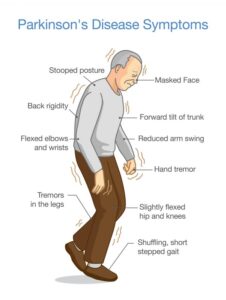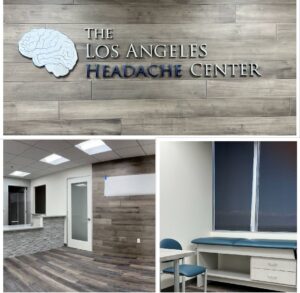Movement Disorders
A Los Angeles movement disorder doctor is a neurologist who has received additional training in Parkinson’s disease (PD) and other movement disorders including dystonia, chorea, tics and tremors.
 Whereas a general neurologist may treat patients with wide variety of neurological conditions, a movement disorder doctor focuses primarily on Parkinson’s disease and movement disorders.
Whereas a general neurologist may treat patients with wide variety of neurological conditions, a movement disorder doctor focuses primarily on Parkinson’s disease and movement disorders.
The benefit of seeing a movement disorder specialist Los Angeles is that they usually have the most up-to-date knowledge of movement disorder treatments and therapies.
For close to a decade, Los Angeles movement disorder specialist and neurologist The LAHC has been helping patients overcome the symptoms and challenges that come along with movement disorders and diseases.
If you or a loved one is afflicted with a movement disorder or degenerative neurological disease and you feel like you need to see a licensed Los Angeles movement disorder doctor, contact The LAHC today : 310-277-9534
Movement disorders is a term used to describe a group of neurological (affecting the nervous system) conditions that impact a patient’s movements.
Depending on the specific disorder, its stage and severity, and a variety of other factors, a patient may experience a range of movement difficulties, including a lack of fluency and/or speed (dyskinesia), loss of and/or slowed voluntary movement (hypokinemia), and involuntary movements (hyperkinesia).
Some of the most common types of movement disorders include:
-
- Parkinson’s disease – Parkinson’s is the most widespread and common form of Parkinsonism. Parkinsonism is a group of motor system diseases that progresses slowly and is caused by the loss of dopamine-producing brain cells.
-
- Essential tremor (ET) –This often inherited movement disorder is also one of the most common. This progressive disease typically starts to show itself in early adulthood and causes tremors when patients are doing everyday tasks like drinking a glass of water or extending their arms.
-
- Dystonia – This movement disorder actually is due to the over activity in the main muscles, the involuntary movement of competing muscles and also hyper activity in muscles that are not normally required for movement.
-
- Ataxia – Affecting the arms and legs, Ataxia mainly impairs a patient’s balance and coordination. This movement disorder may also affect other parts of the body including eye movement, speech and the hands.
-
- Huntington’s disease – This degenerative disorder commonly presents itself in people in their 30s and 40s but can affect varying age groups. Huntington’s disease is a progressive, inherited disease that directly impacts the patient’s movement and cognitive functioning.
When Should You See a Skilled Los Angeles Movement Disorder Doctor?

When you or a loved one is facing the onset of a movement related degenerative or progressive disease, it is absolutely imperative that you contact a movement disorder doctor who is also a reputable neurologist Los Angeles.
The LAHC neurologists that have been committed to providing excellent neurological to their community for close to a decade.
There is no need to suffer in silence. Often times movement disorders can set in slowly. It is best to address these symptoms early on with a treatment plan that is tailored to your specific disorder.
If you or a loved one is afflicted with a movement disorder or degenerative neurological disease and you feel like you need to see a licensed Los Angeles movement disorder specialists, contact The LAHC today : 310-277-9534
